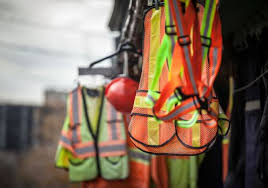In Nigeria, many construction workers face daily dangers due to poor enforcement of safety rules and limited resources on worksites. Fatal accidents remain high, especially where heavy machines operate in noisy conditions. To tackle this problem, researchers are developing affordable wearable devices that use audio-based artificial intelligence to detect the movement and presence of construction equipment. These devices send instant alerts to workers, improving awareness and preventing accidents without the need for costly upgrades.
In many African countries, artificial intelligence and smart sensors can help close safety gaps by spotting risks before they cause harm, monitoring hazards in real time, and making safety enforcement easier. They can work even in remote sites or informal construction areas, giving contractors and workers better protection.
Technology also brings transparency. Smart devices can record safety violations, near misses, and response times. This data helps regulators and companies understand risks and improve safety plans. It can also be used in investigations and to check a contractor’s safety record.
Research into low-cost wearable technology shows that governments can support safety by including such devices in public project requirements. Universities can also work directly with construction firms to test ideas on real sites, moving from theory to practical solutions that save lives.
Scaling up these safety tools will need local production, open-source designs, and bulk purchasing to keep prices low. Building skills in Nigeria means updating engineering courses to include IoT, AI, and robotics, and creating labs where students and industry can work together on safety problems.
National development plans should include smart safety rules, pilot projects to test them, and innovation hubs to support startups working on safety tech. Audio sensors can also help in disaster risk reduction by warning of equipment faults or dangerous conditions before accidents happen.
Nigeria’s engineering education must focus more on real-world problem solving and entrepreneurship. Local startups can respond quickly to on-site safety needs and design solutions that work for Nigerian conditions. Accurate data from devices can guide training and improve safety culture over time.
Smart safety systems must also be simple to use, work in local languages, and last in tough conditions. Training through community groups and trade associations will make sure even informal workers get the benefits.
